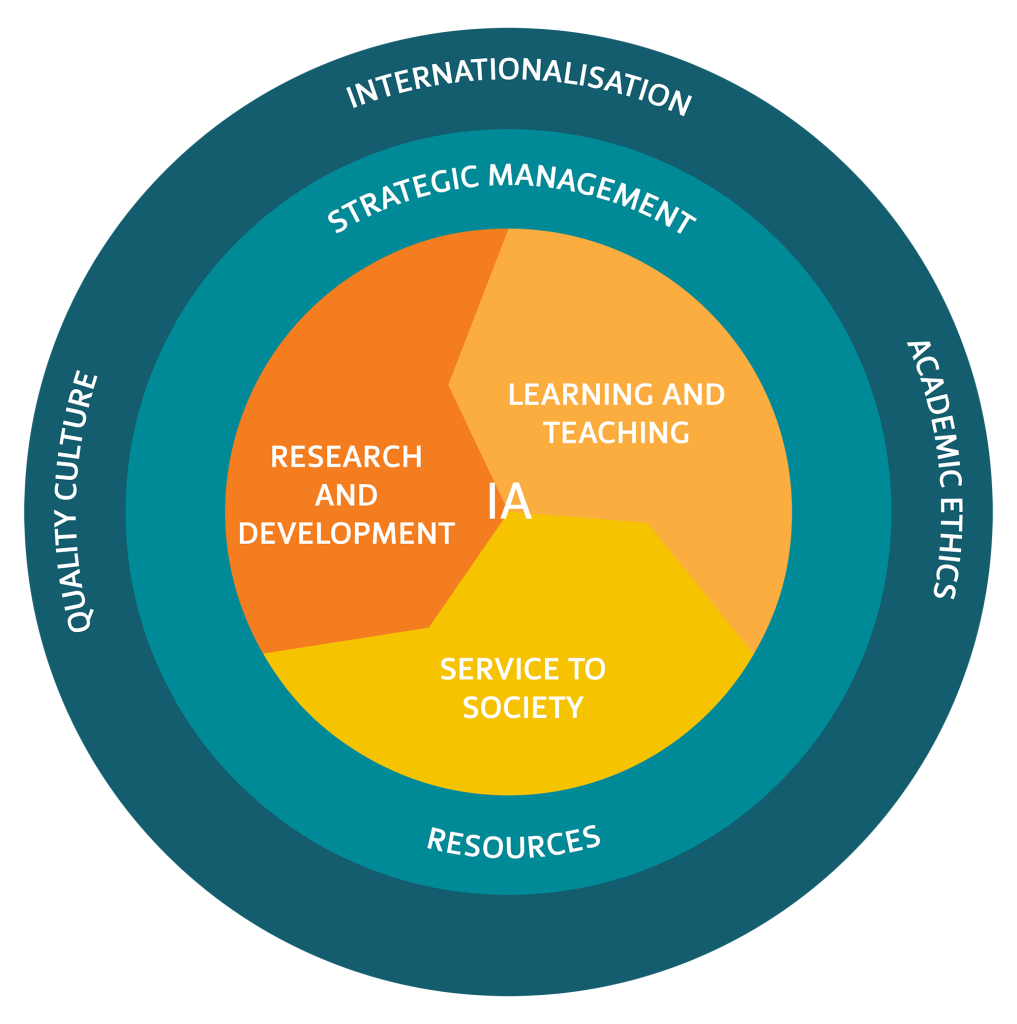Institutional accreditation
Institutional accreditation is external evaluation which assesses the conformity of a university’s management, work procedures, study and research activities and study and research environment to legislation and the goals and development plan of the university. The purpose of institutional accreditation is to support the development of strategic management and quality culture that values learning-centeredness, creativity and innovation in the HEIs, as well as to increase the societal impact of education, research and development delivered by the HEIs.
This is feedback-based evaluation in which an international assessment committee analyses the strengths and weaknesses of the institution of higher education based on the self-assessment report of the institution and on information obtained during the assessment visit, providing recommendations for improvement and ways of implementing them. The goal of the process is to support the development of strategic management and quality culture in institutions of higher education.
Educational institutions must undergo institutional accreditation at least once every seven years.
In institutional accreditation the following areas are reviewed:
- Strategic management
- Resources
- Quality culture
- Academic ethics
- Internationalisation
- Teaching staff
- Study programme
- Learning and teaching
- Student assessment
- Learning support systems
- Research, development and/or other creative activity
- Service to society

How are the IA standards and assessment areas of study programmes related?
Documents regulating institutional accreditation
Please see documents regulating assessments in higher education


